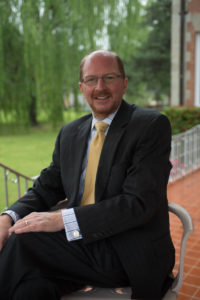 For the past 20 years, the Bartlesville Community Foundation has helped both donors and the beneficiaries of their charitable interests through planned giving. We have worked closely with philanthropic individuals and their advisors to make larger charitable gifts than they could have made from ordinary income.
For the past 20 years, the Bartlesville Community Foundation has helped both donors and the beneficiaries of their charitable interests through planned giving. We have worked closely with philanthropic individuals and their advisors to make larger charitable gifts than they could have made from ordinary income.
But just what is planned giving?
Planned giving is the process of arranging a contribution today that will be allocated in the future. In other words, making a plan to give in the future. Planned gifts are usually donated through a will, trust or estate plan, and are most often granted once the donor has passed away. Gifts can include cash, equity, life insurance, real estate, or personal property.
By way of comparison, many charitable gifts are checks written by donors from their discretionary income. Such gifts benefit donors’ interests today while planned gifts benefit donors’ interests well into the future.
The following is just one example of how planned giving might work:
After making provisions for designated members of their family, an individual or couple makes a planto support a designated number of non-profit organizations by establishing a set dollar amount or giving a percentage of their estate. The donor(s) can then set up an endowed fund with the Bartlesville Community Foundation. When the gift is paid, the BCF invests the donation with those from other likeminded individuals to achieve the “power of together”. By brining contributions from many donors to be invested together, giving dollars have a higher return than if they were to be invested on their own. This leads to more impactful gifts that support designated causes and organization in perpetuity. Additionally, donors are able to take advantage of any tax benefits at the time the gift is made because the Foundation is a registered 501(c)3 organization and has the ability to disperse the gift over time.
Planned giving can benefit donors in other ways in addition to tax advantages and maximizing gift potential.
Designated Beneficiaries: Unlike a typical charitable donation, planned gifts are arranged in a legal contract (e.g. will, trust, fund agreement) By specifying the gift in writing, donors ensure their special interests are taken care of long after they are gone.
Lasting Legacy: Oftentimes, planned giving programs are referred to as legacy programs since planned gifts are a part of a donors’ legacy. Those who have been strong, consistent supporters of non-profit organizations can ensure their support continues well into the future. A planned gift is the best way to accomplish this goal.
The BCF is a collection of endowed funds that benefit charitable organizations, programs, and special projects donors have designated their gifts to support. By bringing funds together, the BCF is able to provide administrative, investment, and grant making support for everyone. This allows charitable-minded individuals to take advantage of an existing, reputable organization that benefits both donors and beneficiaries. Charitable-minded donors can contact the Community Foundation to learn more about planned giving and how they should approach the topic with their legal/financial advisors.
Mike Wilt is the executive director of the Bartlesville Community Foundation. He can be reached at 918-337-2287 or mike@bartlesvillecf.org.
